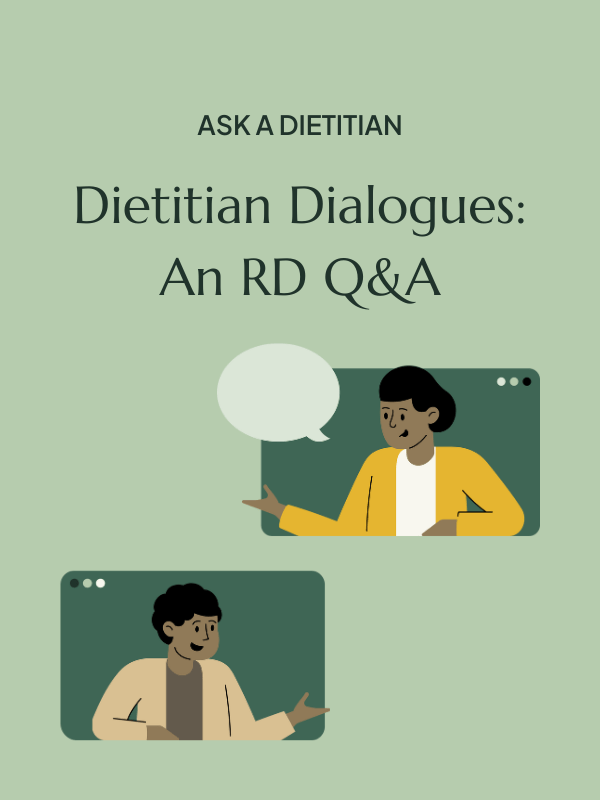Navigating the world of supplements can be overwhelming, and you’re not alone in feeling this way. With over 50,000 supplements available in a multi-billion dollar industry, choosing the right ones can be a real challenge.
If you’re wondering how to make the best choice, read on for some useful tips on assessing if supplements are right for you and how to select the ones that align with your needs.
What Are Dietary Supplements?
Dietary supplements are defined as “products taken by mouth that contain a ‘dietary ingredient’ intended to supplement the diet.” The most popular types of supplements in the US include vitamins, minerals, proteins, fatty acids, probiotics, and botanicals.
Dietary supplements are considered “food” products rather than “drugs.” This means that supplements are not required to have FDA approval for safety and effectiveness. The FDA does require that supplement companies test to confirm their products are “safe,” and follow specific labeling practices. Therefore, it is essential to choose trustworthy companies when purchasing supplements.
Should You Take Supplements?
It can feel like supplements are a quick fix that everyone is turning to these days. But is it the right choice for you? Deciding on supplements depends on your unique situation. There are various health concerns that might lead someone to consider them. One common reason is to address nutrient gaps.
For example, individuals with specific dietary needs, medical conditions, or deficiencies might struggle to get all the necessary vitamins and minerals from their regular diet. Certain life stages, such as pregnancy, may require extra nutrients that supplements can provide. Some people opt for supplements as a preventive measure, whether it’s to support their immune system or enhance their gut health.
People with conditions such as irritable bowel syndrome or celiac disease may experience difficulties absorbing nutrients, potentially leading to deficiencies. In such cases, supplements can help bridge the gap and ensure essential vitamins and minerals are adequately absorbed.
While supplements can be beneficial for certain individuals, especially those with specific nutrient deficiencies or medical conditions, a balanced diet rich in whole foods can often provide all the necessary nutrients, so it’s important to speak to your healthcare provider before starting a new supplementation regimen.
The Different Types of Supplements
Exploring various forms of supplements is crucial for bridging nutrient gaps in diets. These encompass everything from essential vitamins and minerals to herbal and probiotic options, all contributing to overall bodily functions. Let’s delve into these diverse supplement forms and understand how they can bolster your health.
Vitamins And Minerals
Vitamins and minerals occur naturally in fruits, vegetables, and animal products. In most cases, we can obtain adequate vitamins and minerals through diet; however, deficiencies may occur. According to the CDC, the most common vitamin and mineral deficiencies in the U.S. include B-vitamins, iron, calcium, and vitamins D, C, A, and E.
While you should generally obtain vitamins and minerals through a well-balanced diet, this may not always be possible. Some people may have trouble absorbing adequate nutrients from whole food sources, due to a variety of factors. Alternatively, some fruits and vegetables may not be as potent in vitamins and minerals as they once were, due to changing agricultural practices.
In addition, some populations may have a specific need for supplemental vitamins and minerals. For example, a vegetarian or vegan may have trouble consuming adequate amounts of vitamin B12. Additionally, women may experience a loss of iron during their menstrual cycle, potentially benefiting from an iron supplement. They may also have increased nutrient needs, like folic acid, during pregnancy.
If you think you are deficient in vitamins and minerals, despite following a healthy, well balanced diet, speak with your dietitian about supplement options.
Fatty Acids
Omega-3 and omega-6 fatty acids are “essential,” which means our body does not produce them. Therefore, we must consume these fats through the foods we eat. Omega-6 fatty acids are primarily found in vegetable oils, while Omega-3 fatty acids are primarily found in fatty fish like salmon and sardines.
Most people are great at consuming adequate amounts of omega-6 fatty acids, but not omega-3s. Omega-3 fatty acids have been found to support the heart, eyes, brain and reproductive health. If you do not consume adequate amounts of omega-3 through diet, supplementation may be right for you. When choosing omega-3 supplements, look for products that contain EPA and DHA, as these are two most essential forms of omega-3 fatty acids. As always, it is also recommended to discuss supplementation with your dietitian.
For more information on omega-3 and omega-6 fatty acids, read our guide to healthy fats!
Protein
Protein is an essential macronutrient. It is an important part of a healthy diet, required to keep our organs functioning, support hair, skin and nails and maintain lean body mass. Protein exists naturally in food sources such as animal products, beans, nuts and legumes. However, protein powders and supplements have also become increasingly popular in recent years.
Protein powders are especially popular in athletic communities. Many athletes believe protein intake will help them build muscle. However, research shows that eating adequate protein at meals and snacks every 3 hours throughout the day may be just as effective for muscle building.
In fact, generally speaking, most people obtain adequate protein throughout the day, and do not require supplementation in order to maintain adequate lean body mass. However, in some cases, protein powder can provide a quick and easy way to add protein into meals like smoothies, when no other options are available.
Therefore, if your goal is to maintain or build muscle, skip the supplement and consult with your dietitian to learn how to add more to your daily diet. If you are training for a specific athletic event, consider seeing a sports dietitian for more tailored nutrition advice on lean muscle building. Not sure where to start? We’ve compiled everything you need to know about protein powders.
Probiotics
Experts believe that gut health may play a role in our overall, total body health. It’s estimated that our gut contains over 500 species of organisms, which contribute to nutrient digestion and absorption, and can help fight infection. Therefore, it is important to maintain a healthy gut microbiome. Enter probiotics.
Probiotics exist in the foods we eat, such as yogurt, sauerkraut, kefir, and tempeh, and in supplement form. Certain strains of bacteria are thought to improve GI health and weight loss outcomes; however, the potential effective dose and preferred probiotic strain for other populations continues to be studied. Due to the developing research, this is an exciting area of research in the nutrition field.
Therefore, while probiotic supplementation may be beneficial if you are experiencing GI distress, we recommend speaking with your dietitian regarding possible supplementation options for your body as not all probiotics are created equal. To learn more, see our article on improving gut health with diet.
Botanicals
Botanicals are plants with perceived health benefits. One commonly supplemented botanical is turmeric.
Turmeric is popular for its anti-inflammatory benefits, due to its active ingredient, curcumin. Research suggests that curcumin may improve inflammatory conditions, such as Rheumatoid Arthritis. However, it may also improve anxiety, heart health, and even muscle recovery. Therefore, if you suffer from anxiety, high cholesterol, or perform exercise often, turmeric may be a good option for you. But beware. Too much turmeric can have negative side effects.
Many other botanicals and adaptogens have recently gained popularity in the supplement industry. Many botanicals and adaptogens have been widely researched and are believed to exert health benefits. But, many are not. For this reason, it is especially important to consult your dietitian when considering botanical supplements.
How to Choose A Supplement Brand
Okay, now that you have an idea whether or not supplements are right for you, let’s talk about brands. With so many options on the market, it can be very difficult to choose the right supplement brands. Plus, the FDA regulations we discussed earlier aren’t making it any easier. Therefore, consumers should always evaluate research on any products they are thinking of taking.
You can start with an online search. Search for any complaints or recalls issued for the supplements you’re thinking of taking. You can also look for certifications by independent testing companies, such as NSF or USP. But beware, while these companies do confirm that products meet health standards and/or guidelines, they do not test to confirm the proposed benefits of each supplement.
In addition to brand, you should always consider dosing when choosing a supplement product. While supplements can be beneficial in certain amounts, overdosing can be very harmful and lead to health issues. Supplements may also harmfully interact with medications you may be taking in different doses. For this reason, we recommend always discussing the appropriate dose for yourself with a doctor and dietitian, and choosing a brand that manufactures this dose.
The Bottom Line On Supplements
Choosing whole foods such as fruits and vegetables, beans, nuts, seeds and lean protein is important as they naturally provide a balanced mix of nutrients that work together to support overall health, including digestion, immunity, and weight management. Prioritizing whole foods establishes a sustainable and diverse nutritional foundation, reducing the need for supplementation.
However, supplements play an important role and can be helpful for specific groups, such as those with nutrient deficiencies, GI issues, or dietary restrictions. Due to limited FDA regulation, it’s crucial to do your research and choose reputable brands. Consult with a healthcare provider such as a Culina Health registered dietitian if you’re looking to begin a new supplement regimen.






